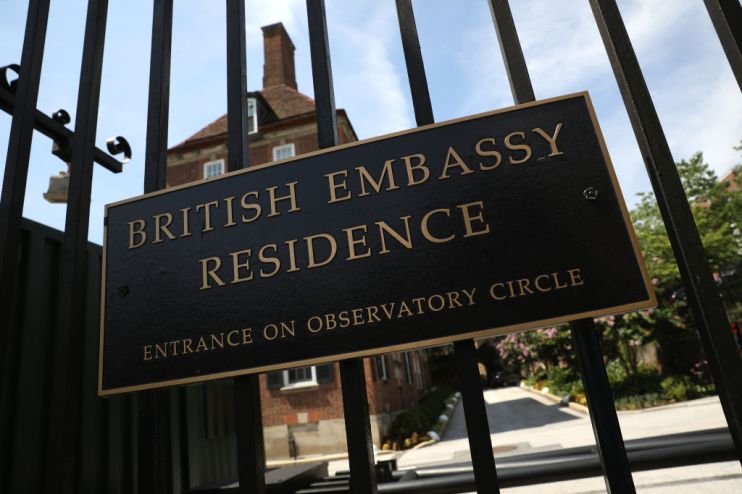Disciplinary matters: The Darroch leak lays bare the erosion of standards at the civil service

The untimely resignation of Sir Kim Darroch as our man in Washington tells us more about society than it does about his qualities as the US ambassador.
Regardless of his assessment of the Trump administration, the fault – the only fault – lies with the leaker, and that individual’s personal standards.
Their motivation is almost irrelevant. What is more troubling is that anyone in such a privileged and sensitive position should even consider divulging what, since the establishment of the diplomatic corps, has been regarded as confidential exchanges between ambassadors and their governments.
Protocol is the etiquette of diplomacy, which should be sacrosanct. When an ambassador reports back to their government, they will speak plainly and openly so the message gets through.
In this instance, someone decided that Darroch’s private thoughts should be shared with the public, in the full knowledge that the outcome would not only be damaging, but would inevitably lead to his resignation or recall.
This reveals a collapse in standards to such an extent that an individual could be employed who would think that such a breach of protocol was acceptable, knowing that the result would force every ambassador around the world to rethink sharing their private thoughts in their daily intelligence reports to governments.
Never mind the question of whether civil servants are bound by the Official Secrets Act; there should in any case be a high level of professionalism and integrity. My fear – confirmed by this incident – is that these standards are being eroded.
Recruitment into the British civil service has in recent years been outsourced to a third party, and diplomats I have trained warn that this has led to a decline in quality.
In days gone by, there were three tranches of examinations. Failure by even a small margin to gain the top mark at any level meant the whole process had to be retaken. It was too tough for even brilliant minds who I know went on to have successful business careers.
This process produced individuals who knew their history and their geography. In contrast, a foreign minister I have worked with says that she has had frustrating interactions with representatives of today’s Foreign Office who clearly have little grasp of geopolitics.
It all comes down to education. Foreign Office desk officers used to be experts in their own field, which helped produce others of the same calibre.
But today, there seems to be an anti-elitist drive reflected in our education system. Today no one is allowed to fail. There is a lack of discipline, which in itself is a dirty word but which would have prevented anyone even contemplating such betrayal as to publish confidential information.
Society is the poorer for this decline in standards; the levels of integrity, the levels of pride in what one does, the levels of aspiration all seem to count for little. It is a me, me, me world; regardless of the harm I do to others, it is acceptable if I can get ahead.
And the civil service seems to be reflecting society rather than taking a lead and being a model for it.
Whoever leaked the Darroch emails has destroyed the diplomatic trust which underpins international relations.
President Trump may have another scalp to boast about, but we are all the poorer now diplomats must consider that the long-established tradition of “don’t shoot the messenger”, as codified by the United Nations in 1946, may be a thing of the past.
Main image credit: Getty